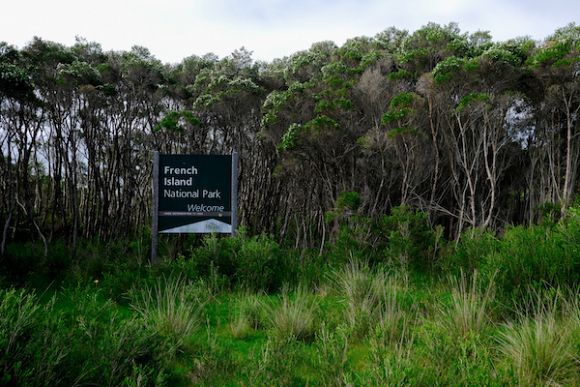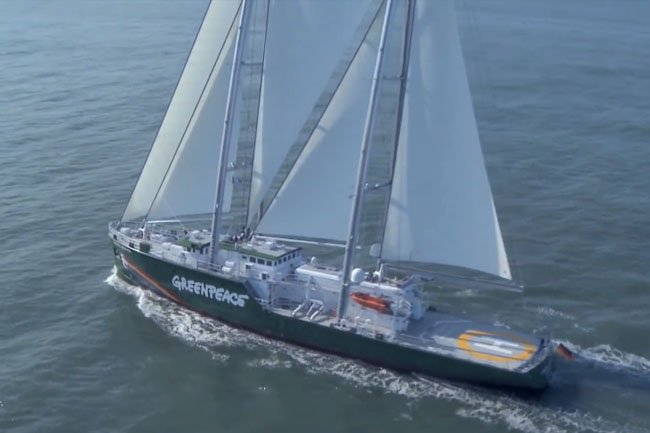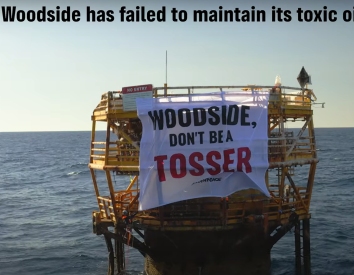The Chairman of AGL Energy has admitted that the company is failing to meet emissions targets as share value continues to plummet, writes David Ritter.
IF YOU ARE ON THE BOARD of a company that makes most of its money from burning coal, there’s plenty of reading that you might do to keep yourself informed of trends and pressures facing your sector.
Perhaps you might be interested in the piece where a South African Nobel Peace Prize laureate compared the measures that need to be taken against your industry to those implemented to stop apartheid? Maybe you might also like to read the article where one of the world’s most decorated climate scientists described coal-burning power stations as ‘death factories’?
Given that it is central to your business, you’d presumably want to read the recent analysis which makes clear that Australia must stop burning coal by 2030 to “do our bit” to meet the Paris climate goal?
I’d guess in particular you’d want to be across both the scientific calculations of how fast all coal-burning needs to be stopped to stave off the worst of climate change, as well as the clearest possible predictions of the actual rate of change in the energy mix.
You’d do your reading, presumably. You’d want to keep scanning the horizon, one assumes. Not because of any personal qualities, but because directors have duties. Whatever the personal politics or belief systems of board members, under Australian law, it is your obligation to exercise judgment about your strategic environment.
Outside of the fiduciary minimum, a good board will also be adding value by bringing a clear diversity of views and ideas to challenge stale notions and to avoid groupthink.
Now let’s move from the theoretical to a real-life case study.
On 30 June, current AGL Chairman Peter Botten openly acknowledged that the Board of Australia’s largest domestic climate polluter had failed to anticipate change in the strategic environment of the business.
The Chairman of the company, which is also Australia’s most prolific violator of environmental regulations for coal-burning power stations said that:
Look, I suppose there is no doubt that the winds have changed and the electricity market has been substantially faster than many people had anticipated; certainly from my perspective, those winds have been extremely fast. I certainly didn’t see quite the level of change and the acceleration of that change here in my thinking 12 months ago and I believe that would be representative of the AGL Board.
There’s no doubt that the progressive intervention into the market of various governments and government regulation, the transition to low carbon and the impact of renewable generation has moved the market and will continue to move the market extremely quickly.
A similar admission had already been made by then CEO Brett Redman back in February, before his shock resignation from the company:
‘The external forces of customer needs, community expectations and technological change have always shaped our market. As we’ve said for some time, it is the speed with which those forces change that will dictate the velocity of our strategy. What we have seen in recent months is an acceleration of all of those forces beyond what we anticipated.’
For highly paid executives of a blue chip company, these guys seem to be remarkably unobservant.
Over the first half of FY21, AGL witnessed a plunge in shareholder value. Around the time of Redman’s resignation announcement, AGL’s share price hit a record 52-week low, with underlying profit dropping 27% and the company posting a $2.29 billion bottom-line loss for the first half.
AGL’s response to the change that the business’s leadership did not foresee has been to announce intentions to demerge the company into two entities. The company’s formal demerger plan was met with what Angela Macdonald-Smith in the Australian Financial Review called a ‘humiliating reception’. Shares promptly fell another 10% in value. At the time of writing, AGL was trading on the ASX at its lowest level since July 2004.
According to Matthew Warren in the AFR:
‘It’s a sudden and possibly fatal demise of a company that seemed, until recently, among the bluest of ASX 200 chips.
The mess that AGL finds itself in has been exacerbated by poor board and management decisions over the past six years.’
It is quite a position to be in. Because of failed thinking, the Board seems to have wagered the business’s fortunes on a policy trajectory consistent with truly catastrophic consequences for life on Earth, but in so doing, was entirely unable to predict the product trends in the sector — a charming mixture of immorality and incompetence.
One can only imagine how the employees at AGL must feel, toiling away under this kind of leadership.
And just this week, the new CEO of the Australian Energy Market Operator, Daniel Westerman, gave AGL another warning, announcing that it was his intention for the grid to be ready for moments of 100% renewable energy by 2025, ‘not because of personal ambition, politics or ideology, but because we know this is where we’re headed’.
This is the context in which the Australasian Centre for Corporate Responsibility this week filed a shareholder resolution requesting that AGL set short, medium and long-term targets that are aligned with the Paris Agreement and provide details for how the company’s capital expenditure will align with the targets and how their remuneration policies will incentivise achievement of the targets.
If adopted at the annual general meeting, the ACCR-backed resolution creates a stage for AGL to chart a rapid course towards both morality and profitability. AGL should commit to closing its coal-burning power stations by 2030, hurriedly get out of gas and become a pure-play renewable energy provider. It is now the only plausible and responsible pathway forward for a company that is in deep trouble.
David Ritter is CEO of Greenpeace Australia Pacific, adjunct professor at Sydney University and an honorary fellow of the Law Faculty at the University of Western Australia. You can follow David Ritter on Twitter @David_Ritter.
Related Articles
 This work is licensed under a Creative Commons Attribution-NonCommercial-NoDerivs 3.0 Australia License
This work is licensed under a Creative Commons Attribution-NonCommercial-NoDerivs 3.0 Australia License
Support independent journalism Subscribe to IA.















